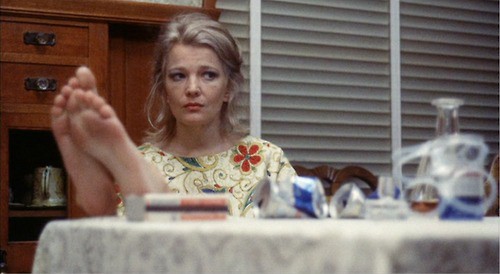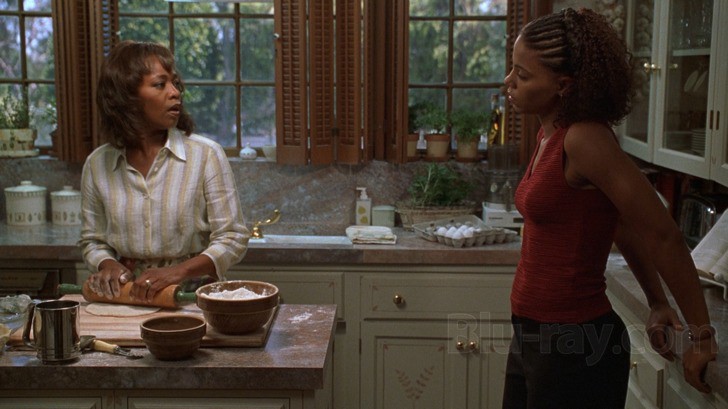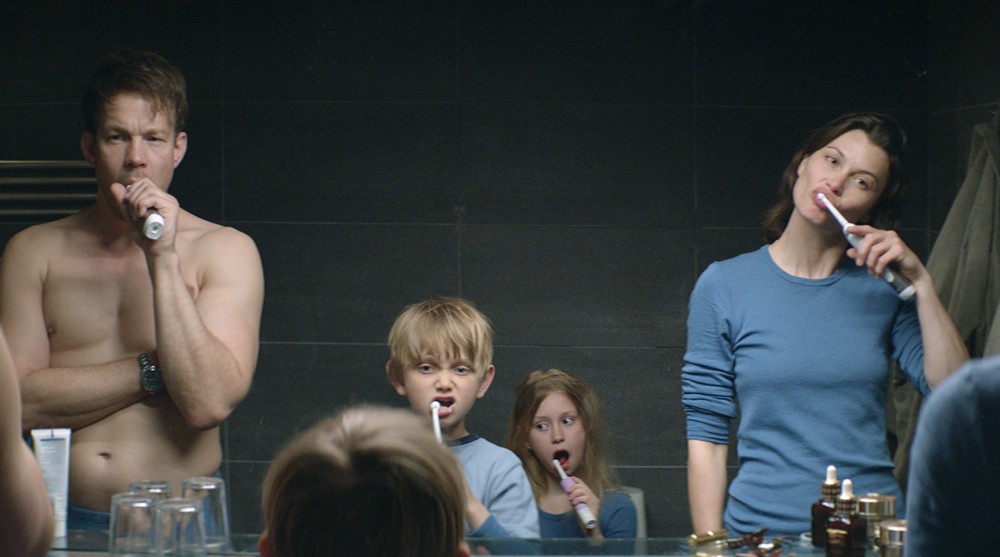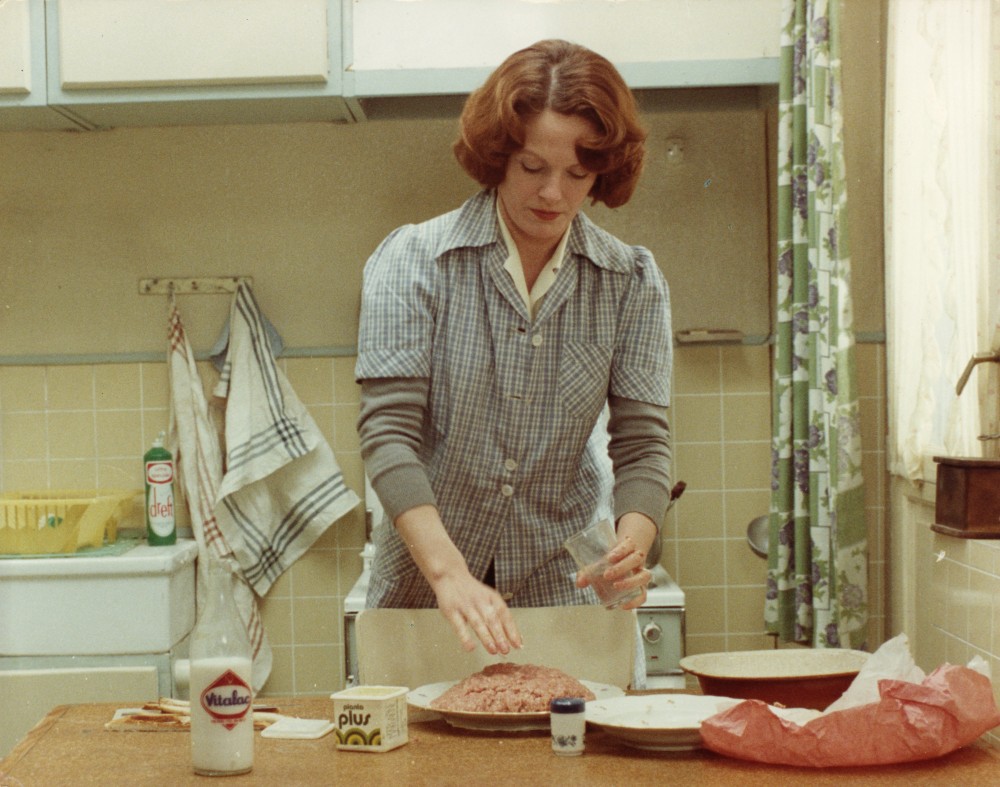You Don’t Own Me
by Julia Cooper

The promise of marriage is the perfect plot device, and the long-suffering wife who cherishes that pledge is the ideal pawn. Maybe she thrashes her hands through her hair and gnashes her teeth in frustration like Scarlett O’Hara, but she stays with her Clark Gable. There is something structural, something inherent to the impossible promise a wife makes — I do! I will! Forever! — embedded in the contract of marriage. Fidelity is a promise to stay close, to remain steadfast, it is a promise to not forfeit your lover for the next someone who comes along, and in that way it begs to be tested.
To be sure, there are some star performances of the good wife that deserve more recognition than this, but these roles are often defined and limited by the character’s marital status. The wife is merely the sum of her husband — the little missus playing house. There’s Gena Rowlands in her many roles as wife in multiple films directed by her husband, from Faces to A Woman Under The Influence, a woeful Michelle Pfeiffer clawing the edge of the tub in What Lies Beneath, and the suburban (if plastic) elegance of the unflappable Stepford Wives. There is the terrorized wife, a wide-eyed Shelley Duvall in The Shining, or the meek Alfre Woodard in Love & Basketball, ironing dress shirt after dress shirt for her working husband. These characters are either defined by how well they perform their wifely duties, or by how mad they are driven by them.

More recently, audiences saw a tightlipped Ebba (Lisa Loven Kongsli) in Ruben Östlund’s Swedish film of marital discontent, Force Majeure (2014). Like her predecessors, Ebba seems resigned to a certain degree of unhappiness in her marriage, accepting the terms of the contract in ways that blend the banal with the neurotic. But unlike her cinematic grandmothers, the buck of the long-suffering wife in cinema stops with Ebba. Film is a testing ground for seeing the world anew and awry, for trying out possible alternatives to age-old crises, and to creating the world in one’s preferred (perhaps distorted) image; Force Majeure suggests that the screen might be the place to start renegotiating better terms for the marriage contract.
The idea of the long-suffering wife is imbedded in the contract of marriage itself. Women were historically an extension of her father’s property, and they were signed, sealed, and delivered to a husband’s estate by the marital ritual. Alongside this bartering system in the eighteenth century there arose the lesser-known law of coverture. This arcane legal doctrine stipulated that married women “lost” their individuality in marriage, their personalities having dissolved into that of their husbands. Poof! This being the case, the wife could only act under her husband’s “cover” and protection, and under the law, husband and wife were only one (masculine) person, not two.
So historically wives have long suffered, but with time “wife” has become a much roomier position to hold. After all, people today marry for all kinds of reasons that range from the romantic to the pragmatic and back again, and those same people are aware of the legal and state formalities that accompany the choice to wed. But here’s the rub: as Elaine Scarry (best known for her theorization of pain!) says, “marriage is a reciprocal act of consent, a contract, but a contract that has very little specified content.” It is the lack of “specified content” that makes it possible for all kinds of confusion, betrayal, and discontent to take hold. And it is there, up to her neck in the unspecified content of the contract, that the long-suffering wife endures her marriage.

Marriage is a contract based on consent — but like Scarry points out, with very few of the terms of that contract laid out in detail. What are wives consenting to? This has been one of marriage’s failures as an institution, but it may also be the grounds for its potential to drastically transform. The terms of the marriage contract are sullied by economic exchange and patriarchy’s tight fist, but let’s be honest, everything is. The very terms of marriage can be shaped by wives in ways that it hasn’t been before. According to Ebba: No grace? No property? No problem.
Fewer of us are getting married than ever before, and yet we maintain a fixed and focused eye on the woman who actually does. The woman who can stay. Long before the good wife was imprinted on celluloid (or christened “Alicia Florrick” on the small screen, bless) literature was fixated on her first. One of the earliest depictions of the steadfast wife who stuck around beyond the dictates of common sense was Homer’s Penelope. She fended off suitors while her husband Odysseus was away fighting the Trojan war; he took a little detour on his way home right by the witchy nymph Circe. Greek mythology gave way to modern literatures that similarly fêted the woman who stood by her man. Henry James’ Isabel Archer, Woolf’s titular Mrs. Dalloway, even Lolita’s Charlotte Haze, are the unfallen women of the Western canon — the upright and long-suffering wives that cinema too has come to love and adapt. We’ve always craved a little catastrophe with our depictions of wifehood it would seem, and each of these wives is one link in a long chain of pop culture references proving as much.
***

By the 1970s North America and Europe was in the throes of second wave feminism, the effects of which could be found onscreen in One Sings, The Other Doesn’t (1977) by Agnès Varda, in the films of Chantal Akerman, and in the not-one-but-two film adaptations of Ibsen’s A Doll’s House in 1973. Dissent was in the air and so was the scent of singed bras. In Cassavetes’ films, Rowlands is a long-suffering housewife gone batty by prolonged contact with children and suburbia.
Many of the wives in these claustrophobic movies go from total obedience to totally unhinged, embodying the “hysteria” — a decidedly female sickness — upon which a patriarchal institution like marriage (and laws like coverture) thrives. To repurpose Mae West’s assessment, marriage is an institution that will land the wife in one.
In 1980 Stanley Kubrick released the Americana thriller The Shining and audiences saw a hapless wife long-suffer in new and terrifying ways. The metaphorical labyrinth of abuse and subservience that Wendy (Duvall) wades through with her husband (Nicholson) is made manifest on the remote grounds of the Overlook Hotel in the form of a hedge maze. Jack’s writerly “genius” turns to madness — not feminine, whiny hysteria — and Wendy is both psychically and physically trapped by his ego. One of the nagging subtexts of the film, as a friend jokingly (but astutely) pointed out, is that Wendy’s inability to cook is to blame for Jack going mad. It’s an uncomfortably familiar motif: If only she’d been a better wife, her husband wouldn’t have flown into a murderous rage. Duvall herself felt terrorized on set by an impugning Kubrick and has spoken of the experience as “almost unbearable.” Duvall’s anecdote of being “absolutely miserable” on set for twelve hours a day lends a fearful symmetry to the making of The Shining, where the figure of the suffering woman is a prerequisite for the flourishing of male genius, both onscreen and off.
Bette Midler, Goldie Hawn, and Diane Keaton brought some levity (and monied style) to the image of the long-suffering wife by seeking revenge in The First Wives Club (1996). In the late 1990s the law of coverture had been gathering dust in legal obscurity, and these wives suffer not from lack of agency, but from age. All of their husbands have traded them in for younger counterparts; their aging bodies are no match for the taut Sarah Jessica Parker or limber Elizabeth Berkely (the latter undoubtedly still fresh in audiences’ minds from her role as a gyrating Nomi Malone in Showgirls). The takedown of their philandering, lying husbands is predicated on the suicide of one of their friends (a maudlin and pearl-wearing Stockard Channing) whose high-profile marriage had collapsed for the same reasons they face. The loose narrative that frames The First Wives Club is the remaining three friends will create a recovery centre for women. But what the plot premise really does is allow the film to indulge the womens’ (very tame) revenge fantasies in the name of a greater, altruistic Good.

The fun in a film like The First Wives Club is watching the good wife gone bad. When a bumbling, sexually repressed Diane Keaton finally finds her voice (by singing “You Don’t Own Me” no less), it’s a cathartic moment that feels like she’s unleashing years of silent suffering. But what mild revenge. Without crossing over into the genre of horror, there seems to be little room for the long-suffering wife to get her just desserts. She may be unhinged, but not too powerful. She can be bad, but not too crazy, okay?
***
In Östlund’s Force Majeure, pain comes fast. A young family sitting down to an après ski lunch becomes spellbound by the natural wonder surrounding them on the patio of a mountainside restaurant. But their awe suddenly turns to horror when faced with the magnitude of nature’s force and the threat that it could, in a flaring instant, overwhelm them entirely. The film is less rumination on the threat of an avalanche and more a character study. The husband and wife duo of Tomas (Johannes Kuhnke) and Ebba does not cope well with their panic-stricken experience and their encounter with the sublime strains their relationship, revealing its many cracks.
Östlund reveals the gendered expectations associated with panic and cultural assumptions around who, between the sexes, performs survival instinctually. Force Majeure is not another film about a pathetic man navel gazing at his inadequacies. Rather, it is a film intently focused on Ebba and her version of the event — her story of trauma and the reverberations through the family unit. Yet even before the film’s central event — this rapid moment upon which the rest of the narrative pivots — we get a sense of the unease that exists between husband and wife, a confused marriage contract. Östlund uses sweeping wide-angled landscape shots of the snow-enveloped Alps to accentuate how relatively innocuous are the couple’s troubles in the (very) grand scheme of things. Alongside these dramatic shots he inserts staccato bursts of a Vivaldi concerto to heighten the interpersonal tension to an absurd pitch, making their relationship problems seem ridiculous.
This comedy of human foibles is reiterated by the constant squeak of ski boots, the clumsy stride of characters in puffy snow pants, and the disproportionate size of the family’s bobbing helmeted heads. The electric toothbrush also features in Force Majeure as an irritating, relentless buzz that manages to make even the boring act of brushing teeth a tense experience.
Despite the absurdist comedic pitch of the film, the laughter it generates is jarring, because it cuts close to expectations of the nurturing female and the impenetrable husband and father. In Force Majeure, it is the wife’s realization that she is the backbone of the family that shocks her more than the avalanche — the trauma is that her husband’s selfishness can no longer be ignored. One of the earliest uses of the phrase “long-suffering” is in the book of Exodus to describe God in all his mercy and enduring patience for the folly of humans, etc. etc. There is forgiveness, then, in long-suffering; there is something akin to grace. People admire women who can stick it out for decades, who are poised and collected in the face of their disappointments. “Such grace,” they say. Wifeliness, then, is next to godliness. That might be the problem. As a drowning Michelle Pfeiffer and a depleted, depressed Lisa Loven Kongsli make clear, being a good wife is a miserable way to die.
It is only when Ebba realizes her husband’s cowardice that her own fades out of the frame and she breaks free from the trope of the long-suffering wife. It is not that Ebba is able to recalibrate the off-kilter power dynamics of her marriage — there seems to be no real hope of that — and it is not that she becomes less high-strung either (Ebba is still Ebba as the credits roll). What does seem to shift is her intuitive sense of what it means to be wife. As she walks up the side of the mountain in the film’s closing sequence we may be left uncertain of her fate, but she isn’t. We can rest assured that whatever she does next it will be with a decisiveness — sprung from a less gender-rigid understanding of fidelity — that accounts for Ebba herself.
Force Majeure is not an open and closed case of a wife finding her voice. What makes it more compelling than that is the quiet heft of responsibility that Ebba grows tired of stoically bearing. She loosens her grasp on her idea of the perfect marriage and thereby releases herself from the martyrdom she’s been living as doting wife and mother.
Julia Louis-Dreyfus is set to produce and star in an American remake of Force Majeure — a probably unnecessary project like many American remakes (the neutered versions of Funny Games, The Vanishing, and City of Angels come painfully to mind) — but maybe bad marriages aren’t universal, and what makes marriages tense and disastrous in the U.S. is different than in Sweden. Maybe Dreyfus will get a sweeter revenge than Ebba. Maybe she’ll get herself a better contract.
Julia Cooper is managing editor of cléo, a journal of film and feminism.